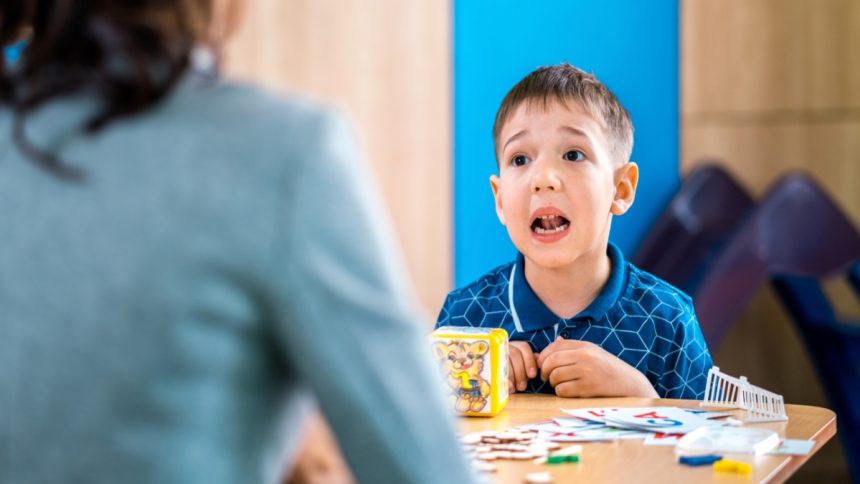Your two-year-old points to the cookie jar and says “want.” Your neighbor’s child the same age is talking in full sentences. Should you worry?
Many Texas parents wonder if their toddler is ready for school. The connection between early speech skills and classroom success runs deeper than most families realize. Children who struggle with communication often face reading challenges that can last for years.
The Reading Connection
Research shows a clear link between early speech skills and later reading success. Children with speech and language difficulties are approximately three to four times more likely to face reading challenges compared to their peers without such issues. This connection starts early and builds over time.
When children reach kindergarten without strong communication skills, they struggle with phonics. They find it hard to break words into sounds. These same skills help children learn to read.
Children who received intervention earlier, in 1st and 2nd grade, made gains relative to controls almost twice that of children receiving intervention in 3rd grade. Starting early makes a big difference.
Key Language Milestones for Texas Toddlers
Most Texas families want to know what to expect from their toddler’s speech. Here are the important markers:
By 18 months, most children say at least 50 words. They start putting two words together like “more milk” or “daddy go.” By age two, toddlers typically have around 200 words. They ask simple questions and follow two-step directions.
At three years old, children speak in sentences of three to four words. Strangers can understand most of what they say. They tell simple stories and ask lots of questions.
Missing these milestones does not mean your child has a problem. But it does mean an SLP eval could help. Early intervention works best when it starts before age three.
How Speech Therapy Texas Services Support School Success
Professional speech therapy does more than fix pronunciation. It builds the foundation skills children need for reading and writing. Therapists work on phonological awareness – the ability to hear and play with sounds in words.
They also help children understand grammar rules and expand their vocabulary. These skills transfer directly to the classroom. Children learn to follow directions, ask questions, and express their ideas clearly.
Early language and communication interventions for children with language impairments have been shown to be effective in assessments administered immediately after treatment. The effects often last for months or years after therapy ends.
Many Texas speech therapy programs include parent coaching. Parents learn simple activities to support their child’s communication at home. This approach helps children practice new skills every day.
Building Communication Skills at Home
Parents can start supporting their toddler’s communication right away. Talk about what you are doing throughout the day. When you cook dinner, describe each step. When you fold laundry, name the colors and textures.
Read books together every day. Ask simple questions about the pictures. Let your child turn the pages and tell you what they see. Singing songs and nursery rhymes helps children learn rhythm and sounds.
Give your child time to respond when you ask questions. Count to ten before jumping in to help. This teaches them that communication takes time and effort.
Play simple games that require talking. Hide toys and ask your child to find them. Take turns making animal sounds. These activities make communication fun and natural.
If you are concerned about your child’s speech development, consider consulting with specialized therapists who understand early intervention techniques. Professional guidance can help identify the best strategies for your child’s specific needs.
The Power of Early Action
The brain grows fastest in the first three years of life. This makes it the best time to address communication challenges. Children who receive early support often catch up to their peers by school age.
Early intervention services can change a child’s developmental path and improve outcomes for children, families, and communities. The investment you make now pays off for years to come.
School performance improves when children start kindergarten with strong communication skills. They follow instructions better. They make friends more easily. They feel confident expressing their thoughts and asking for help.
Bottom line: Early speech therapy gives Texas toddlers the communication foundation they need for school success. The earlier you start, the better the outcomes. Trust your instincts – if you have concerns about your child’s speech development, seek professional guidance. Your child’s future classroom success may depend on the action you take today.
Lynn Martelli is an editor at Readability. She received her MFA in Creative Writing from Antioch University and has worked as an editor for over 10 years. Lynn has edited a wide variety of books, including fiction, non-fiction, memoirs, and more. In her free time, Lynn enjoys reading, writing, and spending time with her family and friends.















